4 January 2016 Prayer Update from Israel from Martin & Norma Sarvis:
1. HANDS RAISED ON THE MOUNTAIN OF THE LORD.
Who may ascend into the hill of YHVH? Or who may stand in His holy place? He who has clean hands and a pure heart… (Psalm 24:3)
On December 22nd an activist named Yehuda Etzion ascended the Temple Mount in observance of the “Tenth of Tevet” (a fast mentioned in Zechariah 8:18, commemorating the beginning of the siege of Jerusalem in 588 B.C.). Although Israel has claimed sovereignty over the Mount since taking it from Jordan in 1967, the site is jointly patrolled with a Jordanian contingent called WAQF, commissioned by the Kingdom of Jordan as custodians of the Muslim holy sites there. Under the present agreement (which is also a stipulation of Israel’s treaty with Jordan), non-Muslims may visit the mountain, but are required to abide by a “status quo” forbidding their outwardly praying or worshipping there. The past two years have seen a marked increase in the harrassment of non-Muslims—especially if identifiably Jewish—on the Mountain. At the same time, the present conservative government has faced increased demands from some of the religious elements within it to relax the rigid laws. Although we are in opposition to the injustice of the present system, that doesn’t mean that we are in agreement with all the means advocated by some right-wing groups towards changing it. For example, in the 1980s, the activest mentioned above conspired to blow up the Dome of the Rock, for which he was sentenced to seven years in prison. Zeal, even for a good cause, needs to be guided and tempered by a Holy Spirit if it is to accomplish lasting work for God. The mountain is the LORD’s and change for good will only be effected in His way and in His timing.
Yet, something was different when Mr. Etzion ascended the Mount on the tenth of Tevet; and his actions have resulted in a remarkable new Court ruling in Israel. At one point as he was walking on the mountain, Etzion turned his palms upwards and raised his hands slightly (see picture above). It was a simple gesture, but one which resulted in immediate repercussions. He was approached by a police officer who demanded that he drop his hands, that this consitituted a “motion of prayer” strictly forbidden by the sign at the entranceway. When Etzion refused to do so, he was detained for questioning, whereupon a Magistrate’s Court agreed with the policeman that his presence constituted a danger to the public, and determined that he be banned from ascending the Mount for two weeks. Yehuda Etzion responded by appealing to the Supreme Court.
On Monday the Jerusalem District Court accepted Etzion’s appeal and cancelled his ban from the Mountain, ruling that it is permissible to raise one’s hands on the Temple Mount. In making the ruling, the judge stated that “under the circumstances there should be no discussion of whether holding one’s palms upwards is an act of worship, it is sufficient to note that the police did not prohibit this action until now.” He warned that such an approach as that taken against Etzion was leading towards a “slippery slope”. He suggested that from here it is but a short step (citing Isaiah 1:2, “Hear, O heavens, and give ear, O earth!”) to accusing one of worshipping who merely lifts his eyes towards the sky; or that perhaps women wearing head coverings on the Mount should be banned, since according to the Talmud, this garment proves the fear of Heaven. After the ruling, Etzion said, “from the outset it was clear to me that even within the framework of the shameful status quo prohibiting prayer at the Temple Mount, there is nothing wrong with raising one’s hands up. By this act I wanted to express unity with the Temple Mount and the Almighty.” (“Court rules raising hands permitted on Temple Mount”: ynetnews.com, 12.29.15 11:41). Although the court ruling made only brief appearances in the news media in Israel, we wonder if it may not in fact prove of much greater significance than initially recognized. The name Zion is related to a word for “sign post”. When certain things occur there, they are often a signal to the world of a way that God is beginning to move. When a high court in Jerusalem makes into Law a ruling related to the positioning of “hands” on the Mountain of God, we would do well to ask, “Lord, are You saying something? What does this signify?”
WHAT RELATIONSHIP MIGHT THE POSTURE OF HUMAN HANDS HAVE TO THE MOUNTAIN OF THE LORD IN JERUSALEM?
One of the most-used words for honouring God in the Hebrew Bible comes from the Hebrew root “yedah”. It is used over 100 times, and it means in English “to give thanks”, “to confess”, “to praise”. The modern Hebrew word todah “thanks” is a form of this word. Now, it is important to know that at the heart of this word yedah is the word “yad”—which means “hand.” This is assumed to be related to the fact that from ancient times, offering of thanks and praise to God among the Hebrews was accompanied with the raising of the hands towards heaven. We find it of interest that the name of the man who raised his hands on the Temple Mount last month is Yehuda (Judah)—a name is derived from this same word for thanks! “She [Leah] became pregnant again and bore a son, and said: ‘This time I will give thanks to YHWH! Therefore she called his name: Yehuda/Giving-Thanks” (Genesis 29:35; Everett Fox translation). The most-repeated praise song in the entire Bible uses this same word, “Give thanks to the LORD for He is Good, and His Kindness endures forever.” As mentioned above, this word which bears within it the image of raising the hands can mean both “give thanks” and “I confess as true”. By raising our hands to heaven, we are not only giving thanks, but we are confessing as true that He is good and His Kindness endures forever!!
We are not here implying that every time this word for thanksgiving is exercised, it should be accompanied with the opening of the hands to God—but it is important to realize that that image was inherrant in the way it was understood from the beginning. And not only in the days of the ancient Hebrews. There is much evidence that the lifting of the hands was a normal expression of worship in the early Church. In I Timothy 2:8, Paul expresses a desire “that men pray everywhere, lifting up holy hands…” In the last century, archaelogists exploring an ancient Roman villa in Lullingstone Kent, England, discovered four rooms, which appear to have been used during the 4th century as a ‘house church’. On one of the walls is a painting from that time depicting worshippers praying with outstretched arms. A popular hymn, translated into English from the German in the 19th century, begins “Now thank we all our God, with hearts and hands and voices…”
To return to the Temple Mount. It may be assumed that the raising of hands would have been a normal and expected expression of praise there, even during David’s time. Psalm 24:4 cautions that those desiring to ascend the Mount have “clean hands and a pure heart.” In our own day, might the verbalizing into Law of freedom to exercise this ancient Biblical gesture in this holy place be a sign that He, Who has promised to return and set up His kingdom there, where Israel and men and women from all nations will come to serve him (Ezekiel 20:40; Isaiah 2:2-3), is beginning to stir from His holy habitation? (Zechariah 2:3)
PLEASE PRAY:
* That thankful praise and confession of God’s eternal goodness and kindness will return to Zion in all of its expressions!
* That, if God is releasing a message to the Body of Messiah in the world through what has taken place in Jerualem—that believers will hear, understand and receive what the “Spirit is saying to the Congregations.”
* That believers everywhere will “lift up holy hands” to God most High—to welcome His works into their lives, to release thanksgiving for His blessing, and to confess His goodness and kindness into the heavenlies. Many congregations in the west frown upon this expression of praise, if not forbidding it—considering it a suspicious action practiced by sects with which they do not agree. Pray for revelation that it is an ancient gesture of praise which pleases God today.
* That we would awaken to the power of our hands to praise—whether raised, clapped, used to play a musical instrument, or reaching in unity to hold the hands of our brothers and sisters in the Lord!
*For Yehuda Yetzion in Jerusalem—that as he seeks to “express unity with the Temple Mount and the Almighty” in this way, he will be granted grace and revelation of the Him who one day spread out His hands on his behalf, on behalf of his people and all humankind.
2. PRAY GOD’S PROTECTION OVER THE MINISTRY OF THE INTERIOR.
“In that day the LORD of Armies will be for a crown of glory and a diadem of beauty to the remnant of His people, for a spirit of justice to him who sits in judgment, and for strength to those who turn back the battle at the gate.” (Isaiah 28:5-6; from last week’s Haftarah)
Early last May, as Prime Minister Netanyahu was putting together his new coalition, there was much prayer regarding the presumed appointment of Aryeh Deri of the Shas party to the extremely critical position of Minister of the Interior (MOI). Deri had held the position 16 years before when he had been turned out of it and was convicted of accepting bribes while in office, for which he spent almost two years in prison. After staying out of politics for the seven years required of those found guilty of such actions, Deri returned to government in 2012 and again gained leadership of his party. Earlier this year, it was assumed that Netanyahu would offer the position to Deri again, in order to gain the seats of the party in his extremely narrow coalition. At that time a petition was posted online gaining over 11,000 signatures, which expressed: “concern and outrage at the casual and natural manner in which politicians are now discussing the appointment of Aryeh Deri to interior minister in Netanyahu’s fourth government—the same job he once held and in which he carried out crimes.”
Believers were among those praying against the appointment—for the reasons mentioned in the petition, and also because Deri and his party have a history of extreme antagonism towards believers in the land, especially Messianic Jews. And since the MOI effectively serves as guardian of the gates into Israel—determining who may come in and who must leave, who is really “Jewish” and who isn’t, whom may receive an ID card, and to whom it will be denied— the presence of the Shas party in that position virtually insures that Jewish believers entering the country, and even those who already have obtained citizenship will face discrimination, harrassment, even deportation. In what was seen as a miracle, Deri, for a number of reasons, at the last moment decided not to seek the position last May; it was handed instead to Silvan Shalom of the Likud party. Recently, after only seven months in office, Shalom resigned…now media reports are all pointing towards Deri’s being granted the post after all. Netanyahu’s coalition is so tight, that should the Shas party pull out, it would almost certainly bring down the government.
We do not believe it is the will of the LORD for this man to regain the position of Ministry of the Interior. It is interesting that the Hebrew word for “interior” is spelled the same as the word for “face”. It is crucial that the “face” welcoming visitors and returning Jews seeking citizenship into the country be one of integrity and honesty. Those in positions of judgment in ancient Israel were to “hear cases between brethren, judge righteously between a man and his brother or the stranger who is with him.” They were to “not show partiality in judgment”—literally, in their judgment they must not display “recognition of faces.” Mr. Deri has proven himself manifestly guilty of breaking these rules in ways which s should disqualify him permanently from having any part in this office of high integrity. However, his appointment, is expected to occur this week—in fact, it was expected to take place yesterday morning at the Prime Minister’s Cabinet Meeting, but was for some reason “postponed.”
PLEASE PRAY:
* That Aryeh Deri and his Shas party will not be allowed to assume control of Israel’s Ministry of Interior. That that ministry will not be allowed to become permeated with workers bearing their militantly anti-Messiah ideology.
* For Prime Minister Netanyahu, that he will have reason and courage to appoint a different minister from a different party.
* Isaiah 28:6. “For a spirit of justice to him who sits in judgment, and for strength to those who turn back the battle at the gate.” The MOI is literally a “gateway” into Israel.
* The party is known for its practice of the occult. Under the protection and in the authority of the blood of Yeshua, declare that “ there is no sorcery against Jacob, nor any divination against Israel.” (Numbers 23:23). Pray against any spiritual activity aimed at control over P.M. Netanyahu. Pray that any occult shield surrounding Aryeh Deri for the purpose of elevating him into a position contrary to God’s purposes in Israel right now be broken.
* That there will be righteousness at the gates of Israel. That the gates of aliyah (returning of Jews to the Land) will be kept open for all those who hear the sound of the “great shofar” (Isaiah 28:13) to return – including Messianic Jews!
THIS WEEK’S TORAH PORTION:
From ancient times there has been a weekly portion (Parashah) from the first five books of Moses (The Torah) and an ending (Haftarah) from the Prophets read on the Sabbath in synagogues around the world. This portion is given a Hebrew name drawn from the opening words of the Torah passage. An illustration of this practice appears to have been recorded in Luke 4:16 where Yeshua (Jesus) arrived in the synagogue in Nazareth and was asked to read the portion (Isaiah 61) from the Prophets. We have found that in perusing these weekly readings, not only are we provided opportunity to identify in the context of God’s Word with millions of Jewish people around the world, but very often the Holy Spirit will illumine specific passages pertinent that week in our intercession for the Land and people of Israel. The Haftarah, unless otherwise noted, will be that read in Ashkenazy synagogues around the world. The references for all texts are those found in English translations of the Scriptures.
The readings for this week 3-9 January 2016 are called Va”Era—“And I Appeared” (..to Abraham, to Isaac, and to Jacob as el Shaddai)
TORAH: Exodus 6:2—9:35
HAFTARAH: Ezekiel 28:25—29:21
*Exodus 6:26b; 7:4. “These are the same Aaron and Moses to whom YHVH said, ‘Bring out the children of Israel from the land of Egypt according to their armies.’” (NKJV)…“And Pharaoh will not heed you, and I shall set my hand against Egypt and I shall bring out my battalions [or, “armies”], My people the Israelites, from the land of Egypt with great retributions, that the Egyptians may know that I am the LORD [YHVH], when I stretch out My hand over Egypt and bring out the Israelites from their midst.” (Alter).
YHVH (The LORD) is Sovereign over many “armies.” This is first shown in Genesis 2:1 when “The heavens and the earth, and all the armies/hosts (Hebrew: tzevaoth) of them, were finished.” In Joshua 5:14, a Being appears before Joshua who is “Captain of the Armies of YHVH”. From I Samuel 1:3 onwards, the name YHVH-Tzevaoth (Yehovah of Armies/LORD of Hosts) will be used over two hundred-fifty times in the Hebrew Bible. As we have often pointed out, when David meets Goliath in battle, he testifies his trust in this Name: “I come to you in the name of YHVH of Armies…”—but he also adds another, “Elohei-ma’arkhot Yisrael”—God of Israel’s Arraying.” The masses of Israelites in Egypt had no idea that they were already an army—yet, as the above verses show, in God’s eyes, they were. Indeed, we shall see in Exodus 12:41 how “all the armies of YHVH” would go forth from the land of Egypt, and Exodus 13:18 (NAS) adds, they would be in “martial array!” When we come into the Kingdom, we enter (or become aware of) a war which is already raging. Yet, not to be bewildered or afraid! Our Captain already has a positioning for us in which to begin, and He will oversee our advancement.
PLEASE PRAY: That the latter-day Army of the Lord in Israel will have confidence in its Captain, and come into array at His command!
*Exodus 7:1. “So the LORD said to Moses: ‘See, I have made you Elohim (Literal Hebrew) to Pharaoh, and Aaron your brother shall be your prophet.” In a very real way, we are God’s body through whom He looses His will “on earth as it is in Heaven.”
*Exodus 7:9-10. “When Pharaoh speaks to you, saying, ‘Show a miracle for yourselves.’ then you shall say to Aaron, ‘Take your rod and cast it before Pharaoh, and let it become a serpent’…and Aaron cast down his rod before Pharaoh and before his servants, and it became a serpent” (NKJV).
The Hebrew here translated “serpent” is a different word and may designate a different creature than that used for the snake from which Moses fled (Exodus 4:3 and 7:15). There the word was nakhash, the common Hebrew word for snake (such as that which tempted Eve in Eden). Here the word is tanin, used in modern Hebrew for “crocodile” or “alligator” (The Nile Crocodile has been feared from ancient times for its propensity, more than any other of the species, to prey upon humans). In Genesis 1:21 tanin is a “great sea creature” created by God. But this creature is also often used as a metaphor for spiritual or physical powers in opposition to God. In Ezekiel 29:3 (Part of this week’s Haftarah), this word tanin is translated “monster” (NKJV), and depicts another Pharaoh (or the spiritual power controlling him), “Behold, I am against you, O Pharaoh king of Egypt, O great monster (tanin) who lies in the midst of his rivers, who has said, ‘My River is my own; I have made it for myself.’ But I will put hooks in your jaws…” (The word is also translated “monster” in Jeremiah 51:34 where it pictures Nebuchadnezzar swallowing up sinful Israel “like a tannin.”). In Psalm 74:13 it is depicted as a many headed “sea monster” (NASB) whose heads God can break in delivering those who trust in him. And in Isaiah 27:1 the NASB reads, “And He will kill the dragon (tanin) who lives in the sea.”
In modern Hebrew translations of the New Covenant Scriptures, the “great, fiery red dragon having seven heads” of Revelation 12:3, who stands before the woman clothed with the sun to devour her baby, is call a tanin…and in 12:9 both tanin (dragon) and nakhash (serpent) are equated with “the Devil and Satan.” Lastly, in Psalm 91:13 (NASB, margin) “tanin” is the dragon which those who dwell in the shelter of the Most High and abide under the shadow of the Almighty, will trample underfoot!
And so, the rod which had become a serpent nakhash (Exodus 7:15), through Moses’ obedient faith became in his and Aaron’s hands “the rod of God” (4:20), which could become a different fearful creature (tanin) which swallowed up other fearful creatures (7:12), or it could become a scepter of authority which could turn the waters of the Nile, over which the Pharaoh’s claimed sovereignty (Ezek 29:3 above), into blood (7:17).
In short, the rod became the symbol of authority through which Moses would “be God” to Pharaoh (7:1), through whom YHVH would manifest Himself as the supreme spiritual Power who would defeat, subdue and swallow up all other opposing spiritual powers.
*Exodus 7:14. “So the LORD said to Moses: ‘Pharaoh’s heart is hard; he refuses to let the people go.” The LORD knew that Pharaoh’s heart was hard (Two words are used for “hard” or “hardened” in these passages, one meaning “heavy” or “settled”, the other “tightened”, “strengthened” or “fortified”). Through the early signs, wonders and plagues, we see Pharaoh’s heart growing hard according to its own nature (7:13, 22), or his actively hardening his own heart (8:15). In 8:29, 32, after the plague of flies, Moses especially warns him against continuing to do this, “But Pharaoh made his heart heavy and insensitive this time also.” Finally, in 9:12 it is specifically stated that “the LORD hardened the heart of Pharaoh.” We have here depicted both the choice and responsibility of man—and the foreknowledge and sovereignty of God. After Moses prays that the rain, hail and thunder cease, Pharaoh “sinned yet more; and he hardened his heart, he and his servants. So the heart of Pharaoh was hard.”
*Exodus 8:23. “And I shall set a ransom between My people [in Goshen] and your people.” (Robert Alter Translation; see also NASB margin). The word “ransom” is often translated here as “difference”—but everywhere else in the Bible the root means “to ransom, to redeem, to rescue from danger”. It is in the last sentence of Psalm 25— “Redeem Israel, O God, out of all his troubles.” Israel would learn that God was already redeeming him out of his troubles…and, through the work of his Messiah would eventually redeem not only Israel but all peoples from the bondage of sin.
*Ezekiel 28:25-26. “Thus says the Lord GOD: ‘When I have gathered the house of Israel from the peoples among whom they are scattered, and am hallowed in them in the sight of the Gentiles, then they will dwell in their own land which I gave to My servant Jacob. And they will dwell safely there, build houses, and plant vineyards; yes, they will dwell securely, when I execute judgments on all those around them who despise them. Then they shall know that I am YHVH their God.” In praying for Israel’s restoration, it is important not to merely pray for her return to the Land—rather, that within the Land the God of her Fathers will come to be hallowed in her midst. Nowhere is Israel promised safety for herself or her roots in the Land just because she has been returned there. We pray for the work of the Holy Spirit in awakening awareness of sin and uncleanness and a longing for cleansing, holiness and restoration—for removal of the veil over Jewish hearts, and illumination of the truth of the love and life of Israel’s God and Saviour. Zion will always be a “signpost” to the nations (that is what the root of the word probably means)…but it is God’s heart and desire that she will be a signal in the eyes of the world of a place where HE is hallowed! He has promised a day when He will be a wall of fire around Jerusalem (Zechariah 2:5) and her glory within!
Martin & Norma Sarvis
Jerusalem
[The Torah and Haftarah portions for next week 10-16 January 2016: Bo—“Come”: TORAH: Exodus: 10:1—13:16; HAFTARAH: Jeremiah 46:3-28]

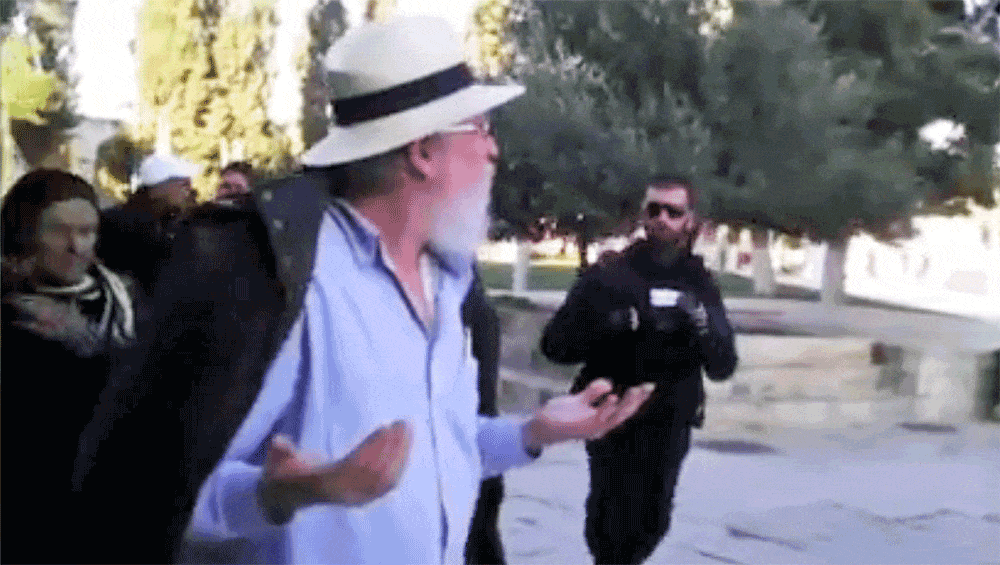
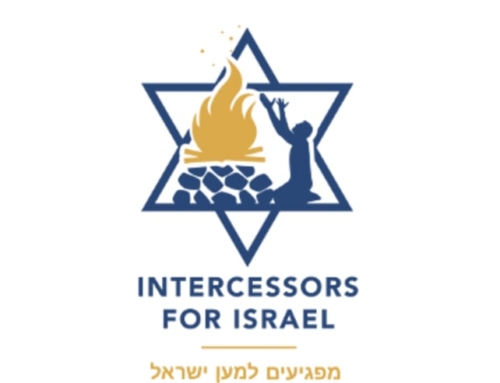
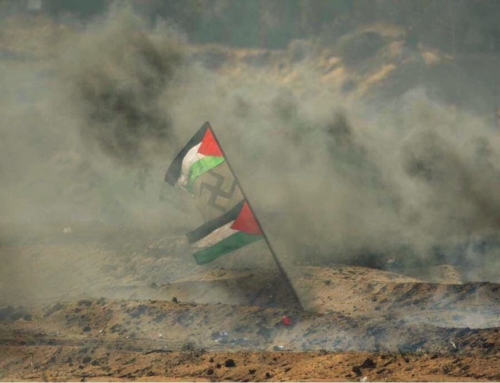
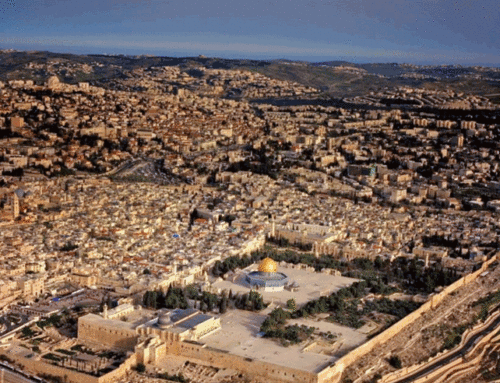
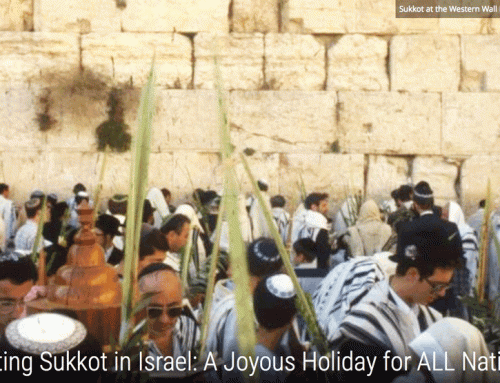
Leave A Comment